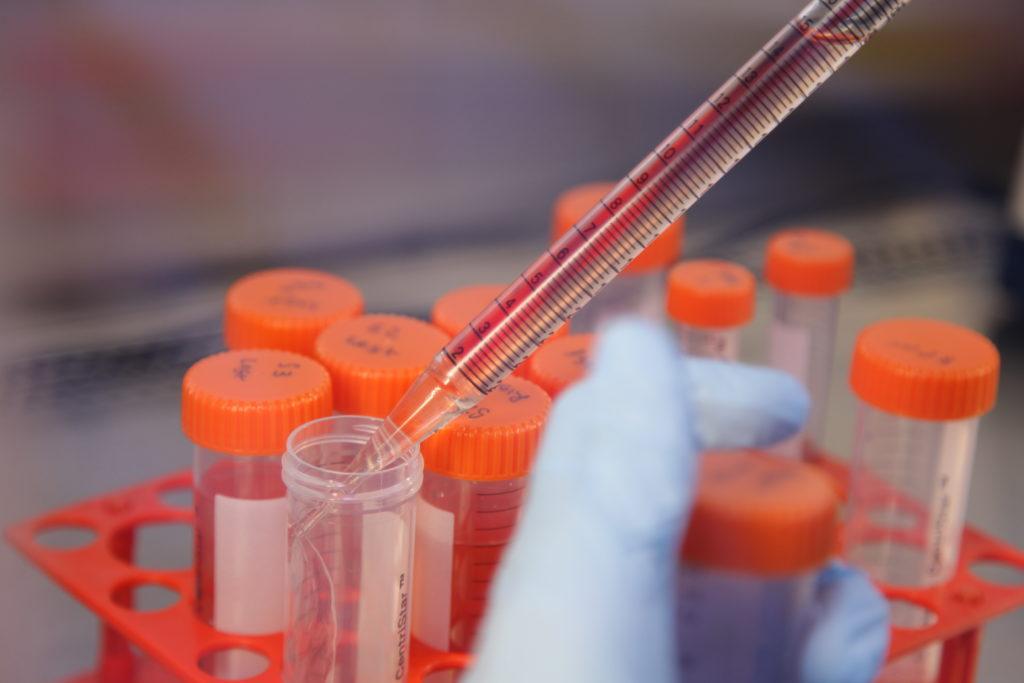Immunotherapy shows promise for patients with metastatic triple-negative breast cancer
 Immunotherapy has been shown to confer an encouraging survival benefit in patients with metastatic triple-negative breast cancer (mTNBC). The phase 1 clinical trial, led by Prof Peter Schmid, Centre Lead for BCI’s Centre for Experimental Cancer Medicine, is the first to report the long-term safety and efficacy of the drug for mTNBC, and may represent significant steps forward for treatment of this disease.
Immunotherapy has been shown to confer an encouraging survival benefit in patients with metastatic triple-negative breast cancer (mTNBC). The phase 1 clinical trial, led by Prof Peter Schmid, Centre Lead for BCI’s Centre for Experimental Cancer Medicine, is the first to report the long-term safety and efficacy of the drug for mTNBC, and may represent significant steps forward for treatment of this disease.
Drugs used to treat breast cancer often target receptors for the hormones oestrogen and progesterone, and receptors for the HER2 protein. However, in TNBC the cells do not possess these three receptor types, thus rendering such targeted therapies ineffective. For patients with advanced or metastatic disease (mTNBC) the prognosis is poor, with a median survival of 8-15 months, and treatment options are limited. Therefore novel therapies are urgently required for these patients.
In the study, supported by Roche and published recently in JAMA Oncology, a drug called atezolizumab was administered to 116 women with mTNBC. The treatment was well-tolerated in patients and was demonstrated to have a long-lasting clinical benefit in the patients who responded to the drug, with a 21-month response duration. The response rates were higher in patients who had not received any prior chemotherapy.
Immunotherapies harness the power of the body’s immune system to recognise and kill cancer cells. Such treatments have shown promising clinical benefits for a variety of cancer types.
Atezolizumab, a type of immunotherapy known as an immune checkpoint inhibitor, works by blocking a protein called PD-L1 on the surface of tumour cells. PD-L1 usually binds to a protein on the surface of immune cells, acting as an ‘off switch’ to inhibit the activation of the immune cells to kill the cancer. By blocking PD-L1, atezolizumab reinvigorates the body’s immune system to recognise and kill the tumour cells.
Clinical trials investigating the use of atezolizumab with other therapies are currently underway, including the IMpassion130 study which is evaluating the effects of atezolizumab with the chemotherapy Abraxane. Treatment with atezolizumab in combination with other chemotherapies may have the potential to shift the treatment paradigm for this difficult-to-treat cancer.
Breast Cancer Awareness Month
This month is Breast Cancer Awareness Month- a worldwide annual campaign dedicated to highlighting the importance of breast awareness, education and research. Breast cancer is the most common cancer in women in the UK, with over 55,000 women diagnosed with this disease each year.
Thanks to increased awareness and research, survival rates have increased over the last 40 years and around 5 out of 6 women diagnosed with breast cancer today in the UK will be alive in 5 years’ time. Continued research and translation of laboratory findings into clinical trials, such as the one above, are vital to help to continue to improve the lives of those with breast cancer.
Category: General News, Publications

No comments yet